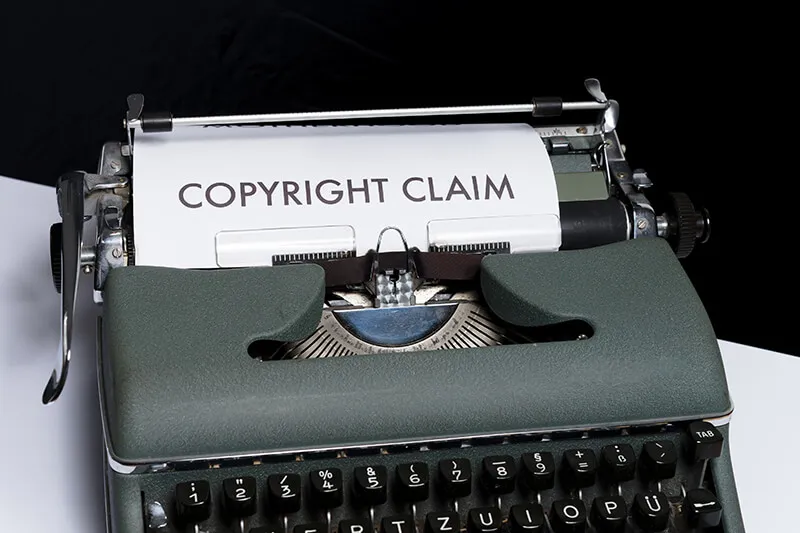Frequently, cease and desist letters are used to resolve disputes between two or more parties. In the event of a cease and desist letter, no court action will be taken. This letter should be sent to the individual or business with whom you are at odds if you want to stop an activity that you believe is violating your rights. Cease and desist letters are also called “stop harassment letters” or “demand letters” in addition to other names.
Whether you are writing to a private individual or a business, you can send a cease and desist letter. In addition to aiding negotiations and avoiding litigation, they can also protect the sender’s interests.

What Are Cease and Desist Letters Used For?
Businesses can protect themselves from potential lawsuits by writing a cease and desist letter. Someone who is engaging in potentially illegal behavior may receive this type of letter as a warning. Cease and desist letters do not imply that the person or company they are directed to cease and desist will necessarily face legal consequences. However, it does mean that the recipient understands that they are breaking the law and may be punished for it.
There are several parts to the letter. In the first block, you find the letter’s text, followed by its signature. Next, the sender’s name and dates are listed. Lastly, there is a space on the letter for the recipient to sign. The recipient may incur additional fines or penalties if he or she ignores the letter.
Consider what you want to accomplish in your cease and desist letter. Sending out a letter that does nothing is not a good idea. Rather than getting attention, you need to make sure you get it. Here are some points to keep in mind:
- Clearly define your goals.
- Don’t forget to include contact information.
- Make sure your tone is positive.
- Be sure to include relevant information.

Cease and Desist Letters: Why Use Them?
Litigation is hard work, to put it simply. The process requires lawyers, judges, witnesses, and a lot of money. However, that isn’t always the case. Whether it is a small business, an individual, or a large corporation, anyone can send a cease and desist letter. In these letters, you are telling someone what you believe is wrong with what they are doing.
Letters of cease and desist serve a variety of purposes. The first benefit is that it notifies the recipient that their actions have been noted. Immediately stopping those actions gives the recipient a chance to stop them. Additionally, it serves as proof that the recipient was notified. Furthermore, it helps prevent future problems by making the recipient aware they cannot do what they did without getting into trouble.
The best part? Sending one doesn’t require a lawyer. You’re not the only one writing cease and desist letters. Most of them are written by regular people like you. To write a formal letter, they simply use templates.
Common Uses for a Cease and Desist Letter
It is possible to send a cease and desist letter if you believe something or someone is harming you. You should specify the offending activity and the potential consequences of non-compliance in your cease and desist request. Various purposes can be served by a cease and desist letter, including:
- Avoid litigation. If your goal is to dissuade the alleged misconduct from occurring without filing a lawsuit, you can send a strong letter instead of filing one. In this manner, litigation is more time-consuming and expensive.
- Intellectual property infringement. Intellectual property owners have certain rights regardless of whether they own a copyright, patent, or trademark. A violation of your rights occurs when another person or business uses your protected work without your consent. An effective way of getting the other party to stop is by sending a cease and desist letter.
- Debt collection services. If debt collection agencies and attorneys are making continuous calls to someone, a cease and desist letter may get them to stop. The Fair Debt Collection Practices Act is often referenced in cease and desist letters. This law allows you to stop them from contacting you, but keep in mind that letters won’t eliminate all debts.
- Slander and libel issues. It is possible to have your reputation irreparably damaged if false information is spread about you. A cease and desist letter should be sent whenever you are involved in slander or libel.
- Harassment. There are many ways in which other parties can harass you. It is true that cease and desist letters can stop harassers’ behavior, but they can also have negative consequences for the harassers. In some instances, it may be better to get a restraining order through the courts or law enforcement.

Getting your case resolved outside of court can prevent litigation
It is primarily used to resolve disputes without resorting to litigation through the early case resolution process. An email, telephone call, or written correspondence is typically used to initiate contact between parties. The parties may initiate formal dispute resolution procedures if they cannot resolve their differences within 30 days.
In cases where there is uncertainty regarding the coverage of a claim, early case resolution can be particularly useful. Obtaining some form of relief through early case resolution saves both parties the costs and delays of litigation.
Additionally, early case resolution can save you time and money by reducing litigation costs and delays. Each party retains flexibility and control over the terms of the settlement because the dispute is being resolved voluntarily rather than through arbitration or mediation. Additionally, early case resolution facilitates the confidential exchange of information related to the dispute between the parties. The cost of litigation is generally lower when a case is resolved early.
Conclusion
In conclusion, you are entitled to send a cease and desist letter to someone who has violated your copyright. Your copyrighted material is being used without your consent in this formal request. Please include information about the date and location of the infringement, why you believe it was intentional, and any damages due to continued use of the infringement.
